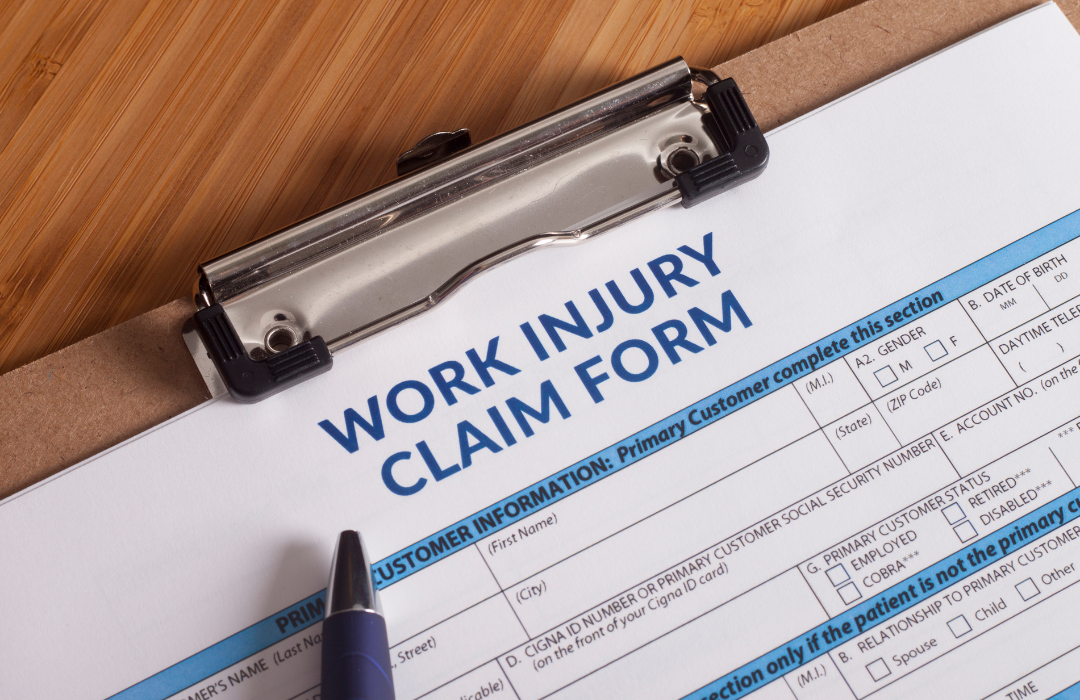By Katy Luchansky on December 20, 2022 • 3 minutes to read
One of the most common questions asked pertaining to Workers’ Compensation is what types of benefits are involved when an employee is hurt at work.
There are four main types of benefits: medical, wage loss, specific loss, and death benefits.
1. Medical Benefits
When an employee is injured at work, they likely need medical treatment. After giving notice and filling out the proper paperwork, they will be given a claim number for the work injury. The employer will likely send them to a panel physician to examine their injury. All medical treatment for the injury, regardless of whether it is with a panel physician, at a hospital, or a with specialist, should be going through the employer’s worker’s compensation insurance. Even if the individual has their own private insurance, under the law, the workers’ compensation insurance carrier has the obligation to pay for medical treatment pertaining to the work injury. Moreover, even if the employee is not missing time from work, if they require medical treatment because of their work injury, the medical bills are payable.
Although it is straightforward that medical bills are covered – employers often contest liability to not have to pay for medical bills. This puts employees in a tough position; especially when they do not have their own private health insurance to fall back on. Oftentimes, an employee is injured, out of work because of their injury, and unable to get medical treatment because of the denial of their claim puts them in a financial position where they cannot afford the treatment they require. Therefore, it is crucial to hire a workers’ compensation attorney. We can file the correct petition to ensure you get the treatment required during the pendency of litigation to make your employer liable for your work injury.
2. Wage Loss Benefits
One of the most stressful components of a work injury is that on top of the debilitating pain, many workers are unable to perform their job because of the injury. This takes them out of work, causing financial strain. If you are out of work because of your work injury, you are entitled to workers’ compensation wage loss benefits. Compensability is based on an injury that produces disability resulting in a loss of earning power. Remember: in workers’ compensation, disability means loss of earning power, or the inability to work your preinjury job.
If you are unable to work and your claim has been temporarily accepted or accepted, you will be paid wage loss benefits based upon your average weekly wage (AWW). That is simply the calculation of what you earned weekly on average prior to your work injury. If you were a new employee, concurrently employer, or a seasonal employee, that calculation may be more complex. Your wage loss rate for benefits is 2/3 of your preinjury wages, up to a maximum rate.
Let’s say you injured your knee at work and had to miss 6 weeks of work because of it. Your average weekly wage before getting hurt was $900. For the 6 weeks you were out of work, you should have received wage loss checks from your employer’s workers’ compensation insurer in the amount of $600 per week. Once you are back to work, those checks will stop, because you are now earning your regular wages and your “disability” has stopped because you no longer have a loss of earning power because of your work injury. Sometimes an injured worker may have to ease back into work after an injury or work in a light duty capacity, earning a lower rate of pay. If this is the case, you are entitled to partial wage loss benefits.
Remember, even if your claim has been wrongfully denied, if you are out of work, we can file a Claim Petition to get you the wage loss benefits you deserve.
3. Specific Loss Benefits
Compensation is payable for loss (amputation) or permanent loss of use of members of the body, binaural hearing impairment of greater than 10%, loss of vision in one or both eyes, and disfigurement. Importantly, compensation for specific loss is paid regardless of loss of earning power and even if the employee loses no time for work. In other words, for example, if you have sustained hearing impairment because of your work, but have continued working, you are still entitled to a lump sum over and above your regular wages. For loss of use, the loss must be permanent, and the loss must be for all practical intents and purposes, requiring medical evidence.
Disfigurement of the head, neck, or face, if serious, permanent, and unsightly, is compensated for a period of up to 275 weeks of the individual’s disability rate. Most commonly, this is seen as scarring after a work-related surgery. For example, if you require neck surgery for a neck injury you sustained at work, you may have a scar on your neck. You are entitled to compensation for the appearance of the scar. Another example is the loss of teeth.
4. Death Benefits
Unfortunately, some serious work injuries lead to death. This can be due to an injury or an occupational disease. In those situations, we can file what is called a fatal claim petition. These must be filed within 3 years after the death and include weekly compensation benefits as well as burial expenses. These are lifetime benefits.
In a fatal claim petition, the employee must also establish membership in a class of recipients entitled to benefits under the Act, as well as all the other elements of a claim petition. The dependents entitled to benefits includes the widower, children under 18, and if there are neither of those, parents, brothers, and sisters. Give our office a call to help determine if you may be entitled to this type of benefits.
 (215) 999-1443
(215) 999-1443
